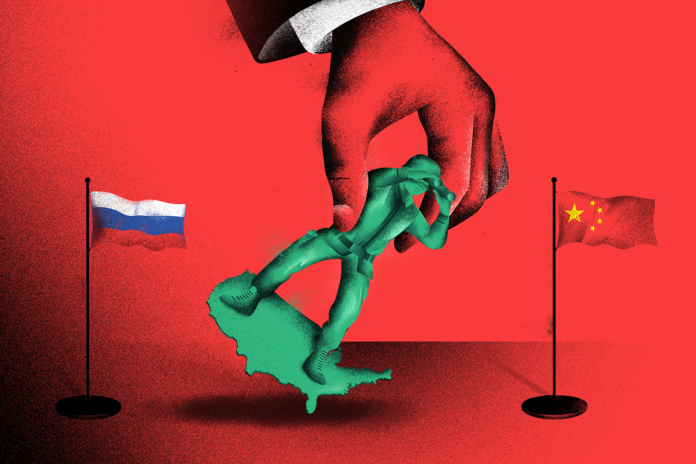Author: Stephen Kotkin
Affiliation: Professor in History and International Affairs at Princeton University, Senior Fellow at the Hoover Institution at Stanford University
Organization/Publisher: Foreign Affairs
Date/Place: May/June 2022/USA
Type of Literature: Analysis
Word Count: 5693
Keywords: Ukraine, China, Cold War
Brief:
According to the author, the Cold War never ended since the ideological conflict between the West and the USSR never stopped. By resorting to history, the author shows the similarities of today’s Ukraine conflict with the Winter War of 1939, the First Soviet-Finnish War. Stalin had offered the neighboring Finns forest territory in exchange for islands in the Baltic Sea and control of the Karelian Isthmus, which the USSR needed for military bases and strategic defense of Leningrad respectively. Despite Stalin’s repeated modifications, his proposal was rejected. Finland, a modest Scandinavian nation of 4 million with a small army, rejected the Soviet behemoth of 170 million people and the largest army in the world. Finland was subsequently invaded by the Red Army, but the Finns resisted for months. Although Winston Churchill and other European leaders praised their bravery, the West did not supply armaments or intervene militarily. Finally, the Finns kept their honor but lost significant land, more than Stalin had initially proposed in the land swap. A year later, Stalin ordered the Red Army’s thorough restoration because the Soviet armies had been dealt a blow as its soldiers were no longer viewed as being 10 feet tall. Stalin and the USSR are both gone, but the Kremlin has once again authorized an invasion as Vladimir Putin replaces them on their ideological account. These connections demonstrate that history is still being formed, rather than repeating. The author believes that Putin has fallen into a geopolitical trap “that Russian rulers have set for themselves again and again,” and that is the result of Russians viewing their country as a powerful and distinct civilization, but that “Russia’s capabilities do not match its aspirations.” The trap is that its rulers then try to concentrate power and close the gap with the West. However, the pattern has been that this consolidation of power leads to personalist dictatorship—because of his grandeur, the autocrat then aggravates the initial problem. The author refers to his 2016 published article on this same subject, that identified Russia’s persistence in this geopolitical path as the gap between Russia and the West became wider after 1991. The author believes this pattern will continue until Russia’s rulers make a strategic decision to live with the West—not as equal powers—and focus on its own internal development. The author concludes with a historical warning—that although it’s tempting to believe that removal of leaders like Putin and Xi will solve geopolitical challenges, the reality is that the national pursuit of self-sufficiency and the establishment of self-sufficient blocs has underpinned the lead-up to, character of, and aftermath of the World Wars. And that while empires come and go, blocs endure. More specifically, that with Putin’s actions and the international response against Russia, Xi will now redouble his efforts for China to “become blockade-proof and sanctions-proof.”
By: Maryam Khan, CIGA Research Associate




